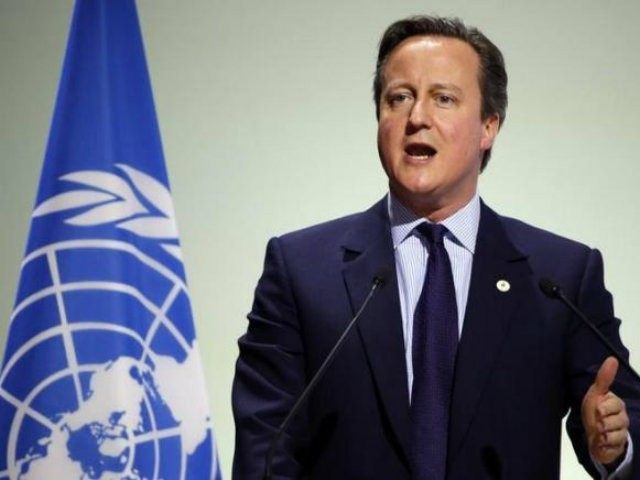British Prime Minister David Cameron said on Tuesday his government had unanimously agreed a motion on air strikes against militants in Syria, portraying the ruling party as united on an issue that has split the Labour opposition.
Cameron wants to launch the strikes as soon as possible against Islamic State in Syria, convinced Britain can no longer “sub-contract” its security to other countries after the group said it was behind last month’s Paris attacks.
But his push to win approval for the action in the House of Commons on Wednesday, avoiding a repeat of a damaging defeat in 2013 on a motion to strike Syria, has deepened divisions in the Labour Party.
New Labour leader Jeremy Corbyn accused Cameron of rushing to war, and appealed to those Labour lawmakers who favour the motion to “think again … and please cast your vote against supporting this government’s military endeavours in Syria”.
Cameron said his cabinet had agreed the motion on extending air strikes to Syria from Iraq, where British warplanes have been bombing targets since Sept. 30 last year.
“That motion talked about, yes, the necessity of taking military action against ISIL (Islamic State) in Syria as well as in Iraq but it is part of a broader strategy,” he said in a televised statement, adding that the debate in parliament would be thorough and would last 10-1/2 hours.
Asked about the prospects for securing a majority, he said: “Let’s wait and see.”
Cameron is all but assured of winning parliamentary approval after Corbyn said he would allow his members of parliament to vote according to their conscience on Wednesday — breaking with a tradition for leaders to instruct MPs how to vote on big decisions.
Media reports say about 50 Labour members of parliament (MPs) will vote with the government, although their leader, a veteran anti-war campaigner, hoped he could still persuade them to change their minds.
Corbyn argued that Cameron’s case did not meet his party’s demands. “I am saying to every MP, you’ve got to make up your own mind … on whether we should commit British troops into yet another war in the Middle East with no endgame in sight,” he told BBC Radio Two.
Many Britons are wary of entering into more costly military action in the Middle East after Western intervention in Iraq, Libya and Afghanistan failed to bring stability and, some believe, led to the rise of militants such as Islamic State.
British finance minister George Osborne said the cost of extending air strikes into Syria would run into the “low tens of millions of pounds”.
But after Islamic State claimed responsibility for killing 130 people in Paris, some members of parliament who were reluctant to launch the air strikes now feel they are needed to protect Britain from such attacks.
Defence Secretary Michael Fallon told MPs on Tuesday there was an “urgent need” for Britain to launch air strikes against Islamic State in Syria for “our own security”.

COMMENTS
Please let us know if you're having issues with commenting.